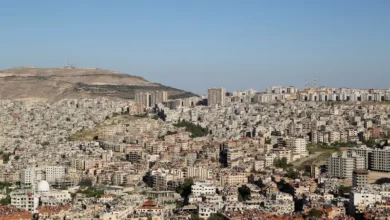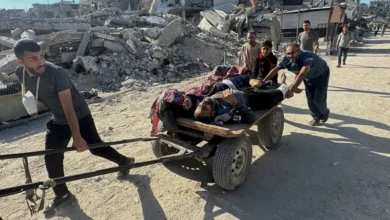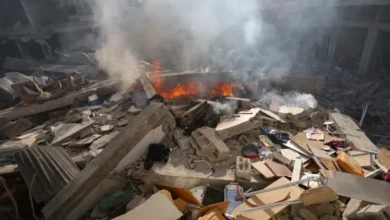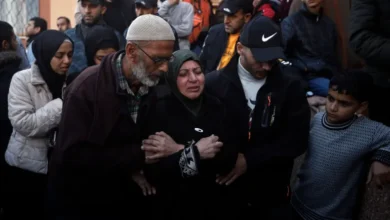‘We are facing a disaster’, Mayor of Gaza’s Maghazi camp warns
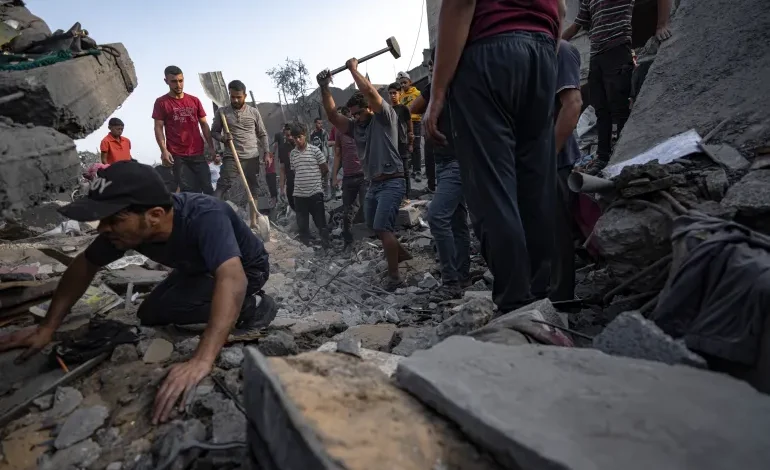
In an area less than 3 square km (1.1sq miles), 100,000 people are struggling to survive. This small patch of Gaza is rapidly becoming uninhabitable.
“We place waste in remote areas on the outskirts of the camp, but these spaces are full,” Hatem al-Ghamri, the mayor of the Maghazi refugee camp in the Gaza Strip, told Al Jazeera. “We are facing a real disaster.”
Maghazi, the smallest of Gaza’s refugee camps, located near Deir el-Balah in the centre of the enclave, normally houses 30,000 people. Now, with the displacement of residents fleeing Israel’s relentless bombardment in the north and the west, the population has more than trebled while Israel’s air raids have continued on homes and shelters here.
The camp is running into serious trouble. With waste piling up, a total lack of water and massive overcrowding, outbreaks of disease have begun.
Despite its location on the southern side of the Strip – where Israeli forces ordered civilians from the north to flee before they began their ground invasion from the north – the small camp has been subjected to intense artillery and air raids.
Such air raids on civilian camps and infrastructure have become commonplace. The Jabalia refugee camp has been targeted at least three times, resulting in the deaths of hundreds of Palestinians. Civilian infrastructure, including schools, has also been subjected to bombing in the south.
Bakery and water wells bombed
At the Maghazi camp, Israeli air raids destroyed the only bakery in the camp on October 26, the mayor said. For seven consecutive days, not a single loaf of bread has been distributed to any of the residents.
The Maghazi camp includes two centres of shelter for displaced civilians in two UNRWA schools, each now accommodating 12,000 people. A third UNRWA school was bombed.
With the overcrowding, displaced people in UNRWA schools are facing mounting challenges, including the spread of diseases such as smallpox and scabies, and a lack of access to essential resources such as water, food and children’s necessities like diapers and milk. Women also lack access to sanitary towels.


